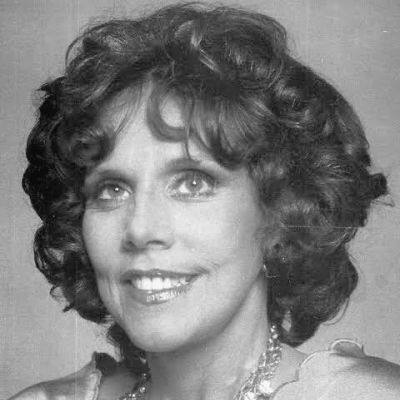Maria Fernanda Meireles, Cecilia Meireles’ daughter, died on July 30 in Rio de Janeiro at the age of 96. She was hospitalized at Casa de Sade So José in Humaitá before her death. Her death was caused by bacterial pneumonia, according to medical officials. It is unclear whether she has had any other health difficulties in the past. The specifics of her funeral are yet to be announced. Luiz Heitor Fernando Meireles Gallon, Fernanda’s son, survives her. From 1956 to 1963, she was married to Luiz Gallon, and from 1963 to 1968, she was married to Oscar Araripe.
RIP Maria Fernanda (Meirelles).
Aqui em cena de Gabriela (1975), junto de outra atriz fabulosa, Sônia Oiticica. pic.twitter.com/7p8xmgWZ29
— Mauricio Racângelo 🚩⭐️🦑 (@mauriciogyboski) July 31, 2022
Everything about Maria Fernanda
Maria Fernanda Meireles Correia Dias, born on October 27, 1925, rose to prominence as the daughter of poet Cecilia Meireles and for her roles in telenovelas such as Gabriela, Pai Heroi, and Dona Beija. She was regarded as one of the best performers in Brazilian theatrical history. Maria studied drama at the Old Vic School of Dramatic Art in Bristol, England, after growing up in Rio de Janeiro. She made her stage debut in 1948 with Paschoal Carlos Magno’s Teatro do Estudante do Brasil, portraying Ophelia in Hoffmann Harnich’s production of William Shakespeare’s Hamlet.
She became well-known for her distinctive voice and appeared in three National Dramatic Company plays in 1954, including As Casadas Solteiras, Senhora dos Afogados, and Cidade Murdered. Between 1962 and 1963, she performed in many performances of Tennessee Williams’ Um Bonde Chamado Desejo (A Streetcar Named Desire).
Maria then moved to Paris and studied with actor Jean Louis Barrault before returning to Brazil in 1965 and appearing in Santa Joana. She received the Moliere Prize in 1970 for her performance in O Balcao, directed by Eros Martim, and they worked on two subsequent plays. Fernanda then starred in the 1972 film As Tres Irmas and the 1979 film Vejo Um Vulto na Janela, Me Acudan Que Sou Dozela. Maria began her cinematic career with Semper Resta Uma Esperanca in 1946, followed by Luz Apagada and Carlota Joaquina – Princesa do Brasil.
Maria Fernanda’s parents were well-known figures.
Cecilia Meireles, Maria Fernanda’s mother, was a well-known journalist, painter, poet, writer, and teacher. During the 1940s, she traveled to America and visited other countries. Along with her trip experiences to Portugal, Europe, Israel, and India, her news editorials underlined the significance of education.

She was a significant poet during the second phase of Brazilian modernism, and she advocated for educational reform as well as the establishment of children’s libraries. Fernando Correia Dias, Maria’s father, established a fresh aesthetic vision that was subsequently developed in Portuguese modernism. He then contributed to periodicals such as A Satira in 1911.

Categories: Entertaintment
Source: vcmp.edu.vn
